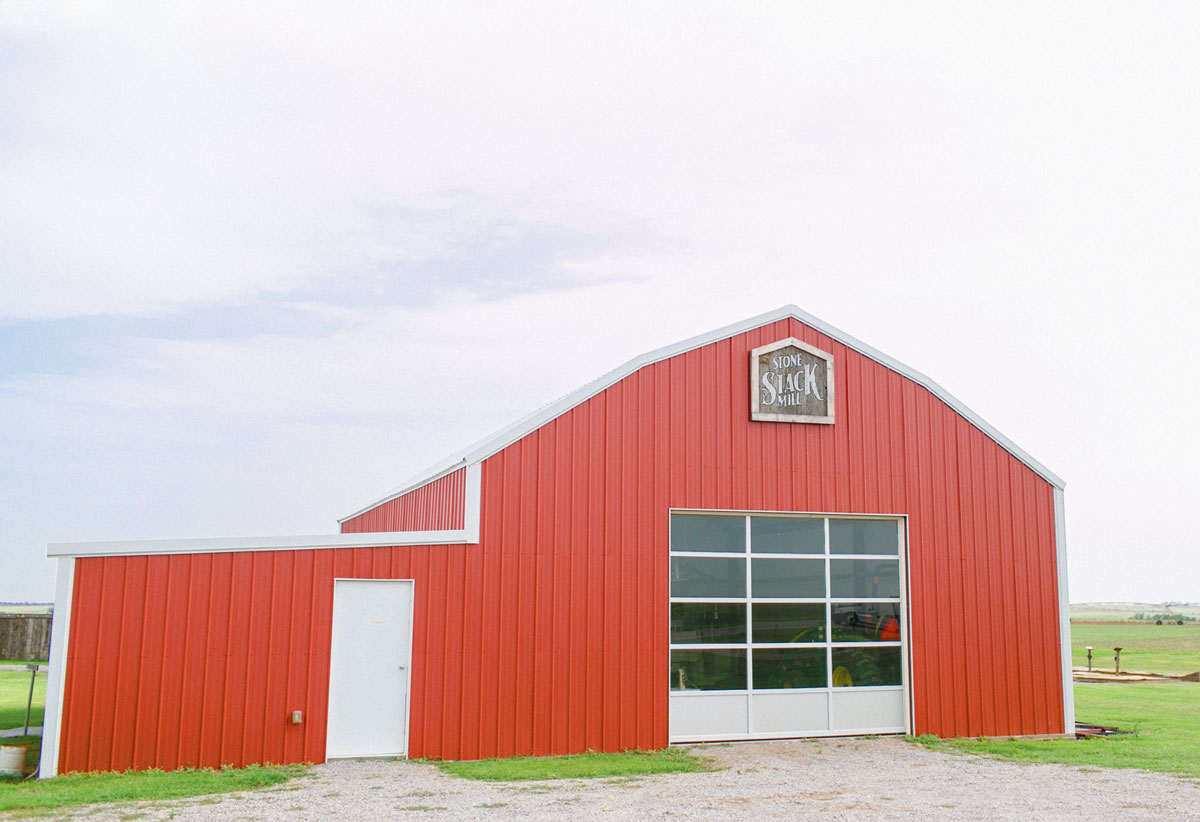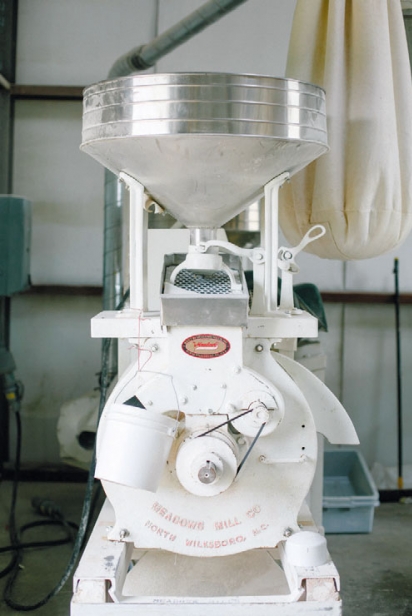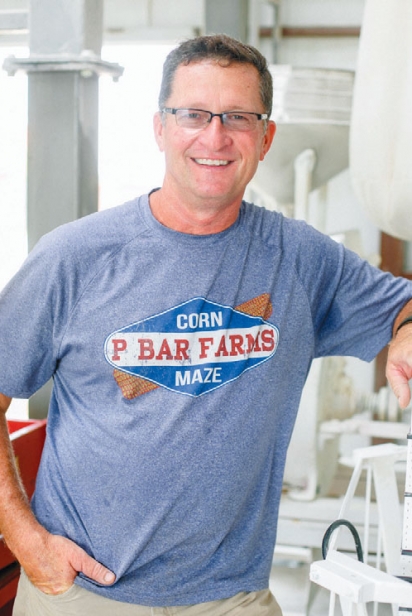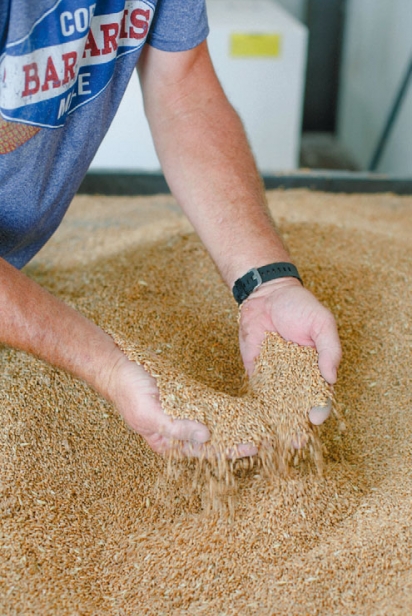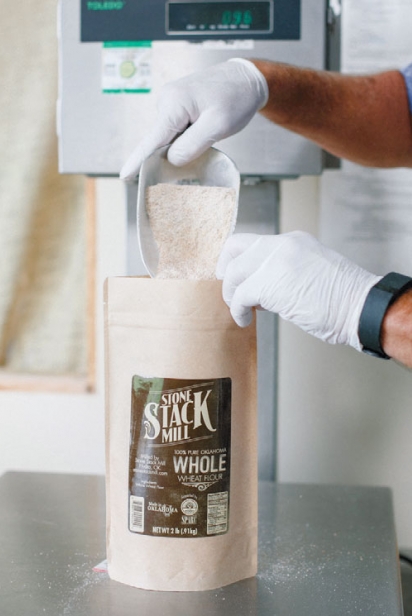Stone Stack Mill
Flour Power
Food can be confusing. Loren Liebscher wants to help.
In a time when more and more children grow up thinking that dinner comes from a fast food bag or from the frozen section at the grocery store, Liebscher says he sees an opportunity to educate.
“We are raising the first generation that truly doesn’t know where the food they eat comes from,” he said. “We ask them, ‘Where does flour come from?’ They say, ‘Flowers.’’’ “I saw a place where maybe I could help.”
Liebscher had grown up farming with his family in El Reno, but as an adult moved to Weatherford in 1982 to help his father-in-law run the family farm, P-Bar Farms.
P-Bar Farms is known for the annual corn maze they host every fall. A red barn with the word “MAZE” painted on top sits right next to historic Route 66. The barn rises out of the horizon as you drive up, with the giant cornfield in the back showing its first sprouts in the hot August sun.
In 2009, a group of farmers were in talks to open a flourmill as a way to receive grant money from a federal program. Unable to make any headway, Liebscher suggested to the group that he build the mill on his family farm in Weatherford. He would need to build a barn first, but said he felt confident he could get it done in time.
In 2010, Liebscher opened Stone Stack Mill Flour and got to work learning the trade, putting his nose to the millstone to help the operation run smoothly from the start.
He and his team travelled to Waco, Texas where they learned from another mill the fine art of making flour—information like how humidity factors into the yield and how to best use all your product and not be wasteful.
“We had a big learning curve,” Liebscher said. “But we kept going at it and we finally got it down. We still come away covered head to toe in white flour, but we are doing well.”
In an effort to be transparent and offer education on his product, the back of each flour sack has printed Liebscher’s phone number and website—and he genuinely loves the feedback.
“I want people to know that there are real people making this for them,” he said. “I had a lady call me the other day and she said she was shocked she didn’t get a machine or operator. ‘No it’s me,’ I said. ‘I picked that grain and helped make it into flour.’”
Stone Stack Flour can be ordered online or picked up locally from either Whole Foods or Urban Agrarian Market in Oklahoma City.
But Stone Stack can also be found in a place little known to Oklahomans— Matamoros, Mexico.
While on a mission trip to the area, which is plagued by drug cartels and violence, Liebscher discovered a small orphanage.
The children there sold tortillas on street corners to raise money for food, clothing and school. But they had trouble acquiring flour on a consistent basis for making the tortillas. Liebscher said he felt called to help.
“Those people needed help,” he said. “The drug cartels are really bad and [the orphanage] had churches that were working with them, but when things got bad they had to quit. Real missions help you really connect—I felt really called by these kids.”
Liebscher is hesitant to even bring up his missionary work. He doesn’t want people to think he’s using the orphanage as a way to sell flour.
“This is between me and God,” he said. “I have this access to flour, they needed flour. I wanted to serve and help reach these kids in any way I could. If you saw the kids in this place, anybody would want to help.” Liebscher visits the area three or four times a year to make sure the operation is going smoothly. He never imagined he would be in the position he is now when he first opened Stone Stack just a few years ago. His mission of reaching out to young kids to educate them on where their food comes from has turned into a project of making sure other kids thousands of miles away don’t go hungry.
“I truly feel blessed,” he said. “A farmer’s life is one I know. I hope others will know it and appreciate it a little bit more now.”


